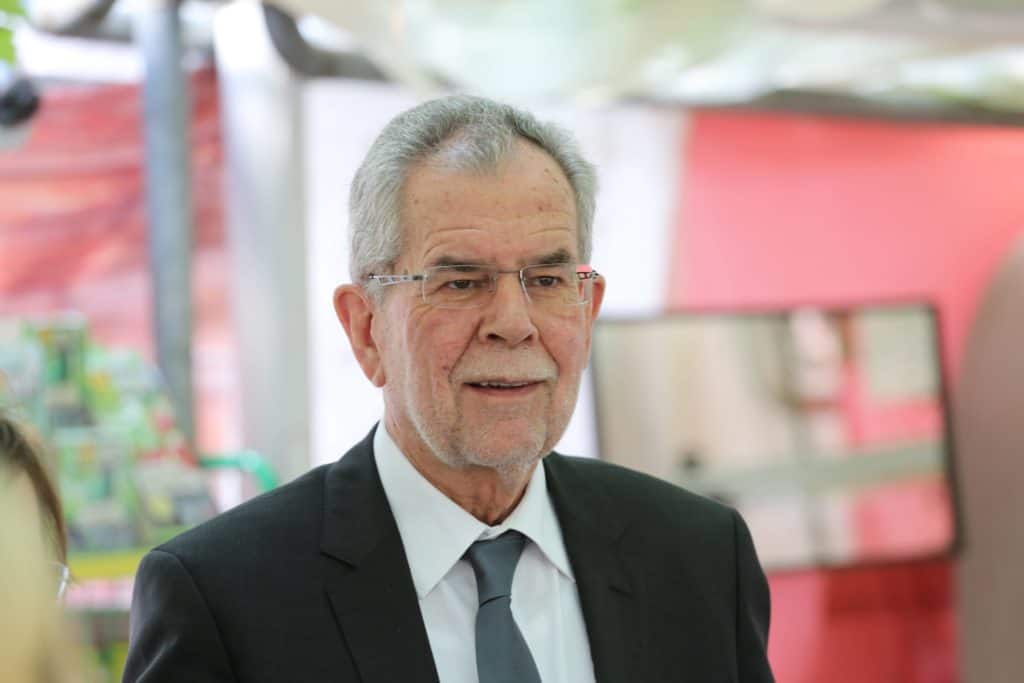Austrian President Says That All Women Will One Day Have to Wear Headscarves to Fight ‘Rampant Islamophobia’
Thomas Burrows, Daily Mail, April 27, 2017
Austria’s left-leaning president Alexander Van Der Bellen has suggested all women must one day wear headscarves to combat Islamophobia.
The green-backed independent triumphed over his populist right-wing rival Norbert Hofer in December after an unprecedented repeat vote.

Alexander Van Der Bellen (Credit Image: © Imago via ZUMA Press)
His comments come after the Austrian government banned the full-face veil in public spaces in January, as part of an attempt to counter the rise of the far-right Freedom Party.
During a talk to students Mr Van der Bellen suggested all women should wear a headscarf in solidarity with Muslims.
Speaking at The House of the European Union in Vienna, he said: ‘It is the right of a woman – do men wear headscarves too? – to dress herself however she wants. That is my opinion about it.
‘Besides that, not only Muslim women. Every woman can wear a headscarf. And if it goes on – and I am already on the next question – with actual rampant Islamophobia, the day will come that we must ask all women to wear a headscarf.
‘All out of solidarity with those who have to on religious grounds.’
Austria banned the burqa, niqab and other face-covering veils earlier this year.
The measure was introduced by the ruling Social Democratic party (SPÖ) and the centre-right Austrian People’s party (ÖVP) to prevent the collapse of their coalition government.
By doing so, they followed in the footsteps of France, which became the first European country to ban the full-face veil officially in 2010.
Bans are also in place in Belgium and some parts of Switzerland.
Mr Van der Bellen had outlined a vision markedly different from that offered during campaigning by his right-wing rival Mr Hofer, who he defeated in December.
Hofer had campaigned on a law-and-order platform in line with his Freedom Party’s opposition to Muslim immigration, its focus on Austrians first and its depiction of the European Union as an out-of-touch institutio.
In contrast, the left-leaning Van der Bellen rejected nationalism in favour of a ‘common Europe as a project of peace.’
He urged equal treatment for all Austrians, whether ‘their families live here for generations or not…whether they love men or women, and whether they are men or women.’
The presidency is a largely symbolic post.
But Van der Bellen’s victory was welcomed by established European political parties fearful of another populist victory after Donald Trump’s shock presidential win in the US.















